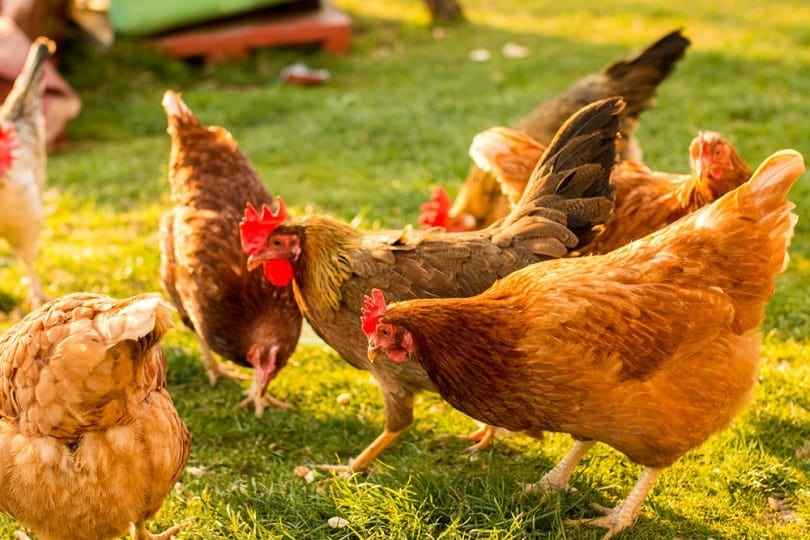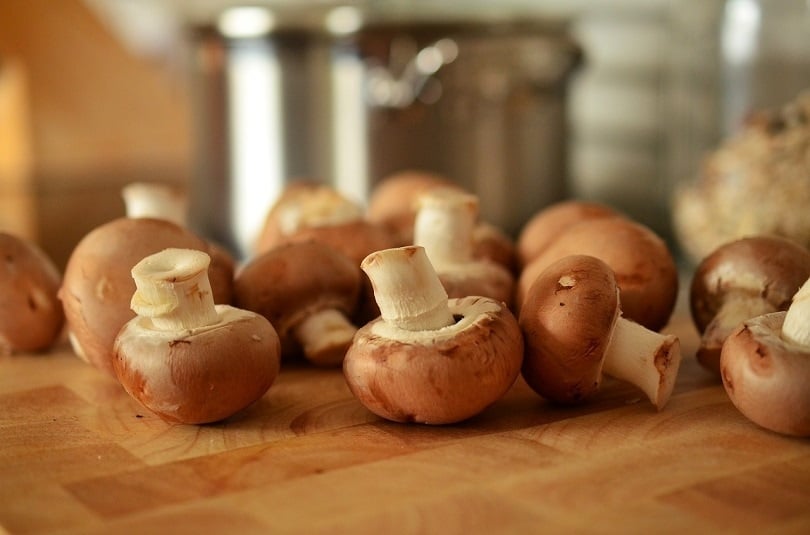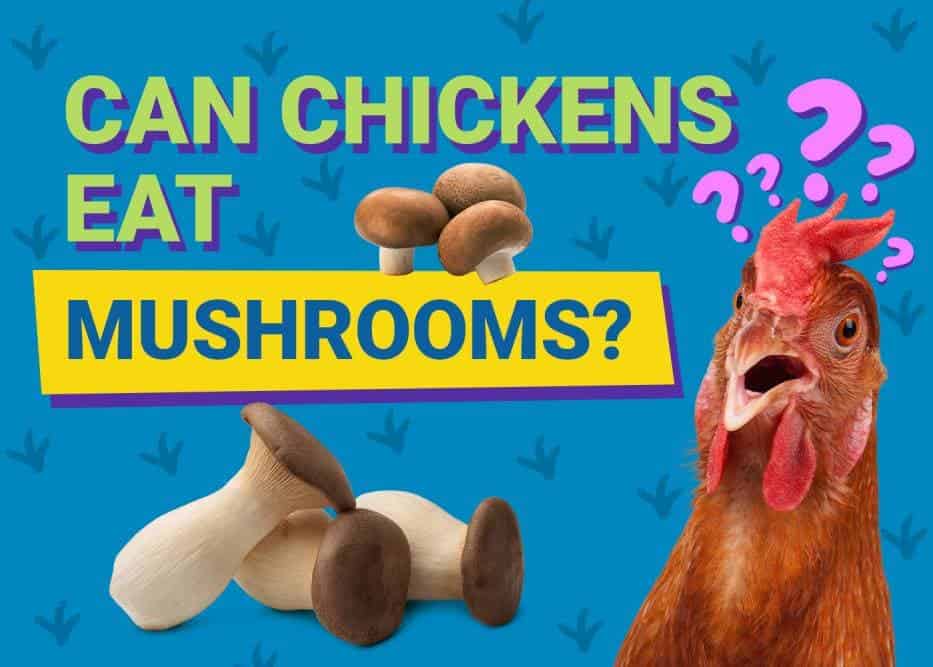To maintain optimum health, chickens should primarily be fed a nutritionally balanced, commercial poultry feed. Many chicken owners like to supplement their birds’ diets by offering human food as treats. If space permits, chickens also enjoy pecking and foraging for their own treats outdoors. While foraging, your chickens may come across a patch of mushrooms. Is it safe for chickens to eat mushrooms? The simple answer is that chickens can eat any mushroom that is edible for humans. However, because it can be very difficult to identify edible wild mushrooms, chickens should be kept away from them and only fed store-bought mushrooms.
The Trouble with Wild Mushrooms
There are many edible and delicious species of wild mushrooms, including morels and hen of the woods. However, wild mushrooms can be difficult to identify and some of the more poisonous varieties closely resemble edible ones. Because mushrooms are so widespread, particularly in moist environments, foraging chickens will likely come into contact with them at some point.
Foraging animals like chickens generally have pretty good instincts about what is safe for them to eat. Chickens also tend to dislike the texture of raw mushrooms. If they do come across mushrooms while foraging, they often just avoid them.

Despite this, it is generally recommended to practice a “better safe than sorry” approach to chickens and wild mushrooms. Chicken owners have reported witnessing their chickens eat wild mushrooms and becoming ill. Toxic mushrooms can cause numerous serious health concerns including neurological problems, kidney issues, and gastrointestinal distress. In the most severe cases, mushroom poisoning can be fatal.
Carefully monitor your chicken’s foraging space for any mushrooms that pop up and safely remove them. If you catch your chickens snacking on wild mushrooms, try to identify the type of mushroom to determine if it is poisonous or not. If you are concerned, make sure to contact your veterinarian.
Store-Bought Mushrooms Are Safe, But Are They Healthy?
As discussed, wild mushrooms are a potentially dangerous snack for chickens. Store-bought mushrooms are safe for chickens, but are they a healthy treat?
Overall, mushrooms are a low-calorie and fat-free food. Like humans, chickens can become unhealthy due to excess weight so choosing low-calorie snacks like mushrooms is beneficial. Mushrooms are also low in sodium and cholesterol and a good source of antioxidants.
There have been scientific studies done on the benefits of feeding mushrooms to chickens. These studies indicated that feeding mushrooms is beneficial to the overall health and growth of chickens. Eating mushrooms regularly seemed to improve the chickens’ gut health, immune systems, and antioxidant levels. In addition, adding mushrooms to the diet of egg-laying chickens improved the overall quality of the eggs produced.
How to Feed Mushrooms to Chickens
- Shitake mushrooms
- Porcini mushrooms
- Morel mushrooms
- Cremini or “baby bella” mushrooms
- Oyster mushrooms
As already discussed, chickens don’t tend to like the texture of raw mushrooms and may prefer them cooked. Additionally, cooked mushrooms are easier for chickens to digest. Mushrooms can be chopped, cooked in a non-stick skillet, and mixed with the chickens’ feed. Avoid cooking the mushrooms in fats like butter or oil and don’t add salt or other seasonings.
As with any snack or treat, mushrooms should be fed in moderation.

Other Plants Chickens Should Avoid (and a Few Other Snacks They May Enjoy)
Wild mushrooms are not the only potentially dangerous item that chickens may encounter while foraging. Again, while chickens typically know which plants to avoid, it is best to prevent them from accessing plants that are known to be toxic.
- Azaleas
- Bulbs, including daffodil, iris, and tulip
- Bracken ferns
- Foxglove
- Holly
- Lupine
- Oak trees
- Yew
A comprehensive list of plants toxic to chickens can be found here. If you are concerned your chicken may have eaten a plant on this list, contact your veterinarian.
While store-bought mushrooms are a safe and healthy snack, not all chickens like their taste or texture.
- Vegetables such as broccoli, cabbage, and cucumbers. Most vegetables are safe for chickens.
- Fruits such as watermelon, cantaloupe, or berries.
- Grains such as wheat, oats, or corn.
A more extensive list of foods chickens can eat, as well as those that are off-limits, can be found here.
Conclusion
Mushrooms can be a healthy addition to your chicken’s normal diet. Just be sure to stick to offering store-bought mushrooms that you know are safe and edible. Keep an eye on your chicken’s foraging space and make sure it is free of wild mushrooms or other potentially toxic plants. As always, if you have any concerns about your chicken’s diet or health and well-being, consult your veterinarian.
Find out if other foods are safe to feed to animals:
